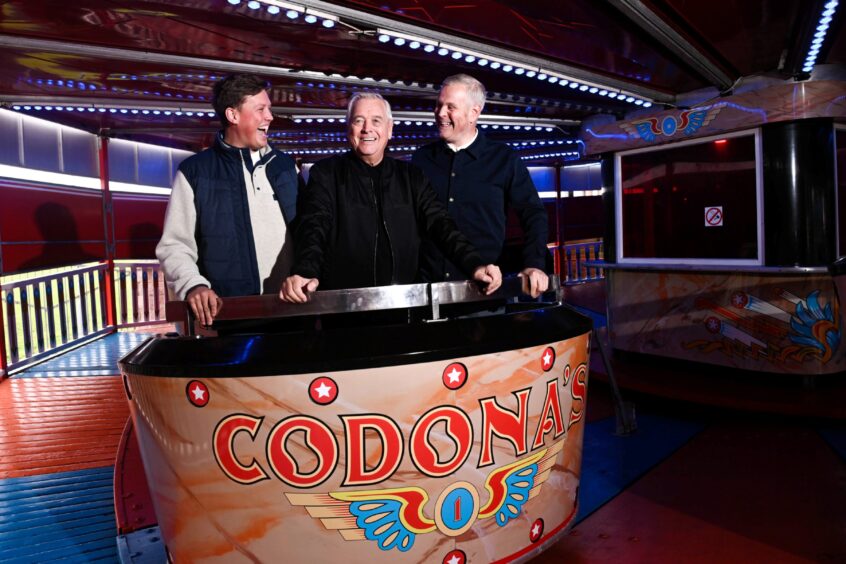
For more than a century the name Codona has been all but synonymous with Aberdeen.
But until now Alan, who switched Glasgow for the Granite City and travelling fairs for the beachfront amusement park, has never told the story of his family’s incredible journey.
Lindsay Bruce sat down with three generations of Codonas as they open up their archives for the first time, sharing stories of the graft and glitz of showmanship, growing up on the road, and making Aberdeen their family home.
‘Showmanship is in our blood,’ says Alan Codona
Alan Codona is in the entertainment business by blood. When Frank Codoni, born in 1765, settled in Scotland, the Swiss-Italian showman continued his family’s legacy of delighting the masses, of which Alan is still a key part.
Thought to be all but illiterate, it would be a few years, and several iterations of his Frank’s surname, before Codona became a name ingrained in Scottish fun fair and world circus history.
But while Alan’s great-grandfather grew up in Edinburgh, later moving to the yards of Glasgow where Alan was born, members of the wider family sought the bright lights of America.
“I didn’t know until recently that Alfredo Codona was the stunt double for Johnny Weissmuller in the movie Tarzan,” Alan says. “It was a bit less glamourous here,” he adds, “but what a fantastic way to grow up.”
Family first as Codona archives are opened to the press
We’re joined by Alan’s wife Nancy, their son and daughter John and Andrea, and grandson Jack, as we pore over album upon album of photos documenting the family’s history. I’ve already visited Alan and Nancy at home but on the wettest day for some weeks, we’ve gathered in the amusement park.
Although retired Alan’s name is still on the door, and I’m struck by how warm they are with one another, and the evident joy derived from reminiscing.
“We’ve never done this before,” Alan tells me. “But it’s nice to remember where you come from.”
“And how hard we worked to get where we are,” Andrea adds.
‘Both from travelling families, we met at school,’ says Nancy
Alan and Nancy both grew up in the north-east of Glasgow.
Son of Alfred Codona, grandson of John and great-grandson of William, Alan was born into a family who spent the summer months on the road, all over the UK.
Likewise Nancy, one of James Graham’s 10 children, also came from a family of showmen.
However, the couple met during a less transient time, at their primary school.
“Education was important to my father,” Alan explains.
“Show families are quite a tight-knit community,” adds Nancy, “so our families also knew one another.”
A future in fun fairs paid off for the Codona family
Their fortuitous paths crossing could have just as easily never happened.
Business decisions taken generations earlier could have set them on entirely different trajectories.
William Codona, based in Edinburgh, was born in 1861 and got involved in the business just as interest in moving pictures began.
“He ran a sideshow with a hand-cranked cinemascope and it was a mammoth success,” Alan says.
“Some years later, with a couple of cinemas in the Edinburgh area, it looked like demand for the big screen – as well as for fun fairs – was only going to increase.”
In a move that would eventually see the Codona’s open Scotland’s first permanent entertainment park, Fun City, in Portobello, by the early 1920s they decided to forego cinema in favour of running fun fairs.
More than 100 years of Codona fairs in Aberdeen
By that time, the Codona travelling fair was already an eagerly anticipated annual event in Aberdeen.
“From around 1900 my grandfather was bringing the fair up here. He ran it from Guest Row by the old Town House,” Alan says.
“And by the mid-1920s we were bringing a figure of eight rollercoaster, by train, to Kittybrewster. The rest went by road, but the rollercoaster had to come by track.”
An image depicting the site in Kittybrewster is in pride of place in Alan’s Rubislaw home above his desk.
‘What a life I’ve had,’ says retired Codona boss Alan
The Codonas weren’t without competition in the Granite City, however. Other funfairs would also visit and from the end of the Second World War John Crole and Sons had a permanent pitch at the beach.
The 1940s would also see the Codona family put a stake in the ground in Glasgow.
Around five acres of land were purchased for “winter yards” in Riddrie.
“That was also the first time anyone had a house. My granny had a property in Glasgow and I stayed in it sometimes as a wee boy. The rest of the time we were in caravans.”
Surrounded by timber-framed rides such as the dodgems and the waltzers, Alan says he had an “upbringing to rival anybody’s”
“It was a fantastic way of life. Travelling, seeing the country, meeting new people. Of course I also got to go to school, which was very important to my father.”
Education was a priority for Alfred and Emily Codona
Unlike his father John and grandfather William, Alan’s dad Alfred had a “reasonable education.”
“He was left behind in Glasgow so he could go to school,” Alan recalls, “but was working full-time in the business by the time he was 14 or 15.
Appreciating the importance of a good education Alfred and wife Emily – also the daughter of a sideshow operator from the north of England – sent Alan and his siblings to a convent school in Girvan, where Alan met future wife Nancy.
Later Alan would board at St Joseph’s School, Dumfries.
Trapeze stars eloped from Scotland to Mexico
But if the Scottish Codona cohort, by choosing formal education, were breaking with tradition, then the American Codonas were defying expectations – and gravity – with their circus acts.
Henry Codona married Victorine Régnier, believed to be part of a French dance troupe visiting Glasgow.
“The pair hopped it down to the Clyde docks, eloped, and eventually settled in Mexico,” Alan laughs.
The couple’s grandchildren Alfredo and Lalo would later become known as the Flying Codonas, working for the Barnum and Bailey, and Ringling Bros Circus, among others.
Hollywood, high wires and heartbreak for the Flying Codonas
Alfredo earned himself credits for Hollywood movie stunt work, but the Flying Codonas gained international praise as the “greatest circus stars of the first half of the twentieth century.”
Sadly, when injury and heartbreak marred Alfredo’s life, tragedy shortly followed.
On July 30 1937, in the office of his divorce lawyer, he took out a gun, shot his ex-wife, before turning the pistol on himself.
“King Alfredo” was later immortalized in the 1964 movie The Flying Trapeze, played by Burt Lancaster.
Royal celebration led to epic fun fair trek
“There’s no such drama here,” says Alan. “Just a lot of hard work.”
Alan’s grandfather John Codona eventually took over the running of the Scottish enterprise, regularly bringing the fair to Aberdeen in the spring.
The family archives hold images of Codona trailers and rides going the length and breadth of the country, even journeying to London for the Queen’s Coronation.
“That was our biggest expedition ever,” Alan says.
1950s bring change for the Codona family
Change was coming for the family, and by the late 1950s a new era in the Granite City would begin.
“We had already won the tender that Crole’s had, for the fair where the circus goes now, so were kind of semi-permanently here. Summer in Aberdeen, winter in Glasgow. By then my father Alfred and his brother Gordon had the business,” Alan adds.
There’s still a Glaswegian undertone to his Aberdonian accent.
But from 1960 onwards, with Alfred in charge, the forerunner of today’s Codona Amusement Park began to take shape.
History remembered in closely guarded family archives
In 1969 the family won a tender, this time to establish a permanent site, with the park opening a year later in 1970.
“Everything changed for us then,” Nancy explained. “No more travelling for us.”
John, Andrea and her son Jack – all now key players in the business – laugh as old images of prize bingos, primitive go-kart tracks, relatives and Rambo Land spill onto the table.
Andrea shows me flyers from various promotions over the years.
“It wasn’t a thing then – organised birthday parties and other events we put on. We always tried to do something new.
“And it’s all done on social media now, so even these are a piece of history,” she says.
‘Aberdeen is where had our first real home,’ says Nancy
Searching for an elusive picture of Andrea and her sister Marissa as children in park, I ask Alan and Nancy about their wedding.
“We got married in 1965, in Falkirk Registry Office.
“Alan was in Scotland, I was travelling in England, so we met somewhere in the middle, got married and went back to work,” she says.
“No honeymoon?”
“No! There was no time,” she laughs.
Now 78 and 77 respectively, the couple are retired, and have spent most of their lives together in Aberdeen.
Their daughters Andrea and Marissa arrived in Glasgow before the move north in 1970. Their sons, John and Alfred, were born and raised in Aberdeen.
Initially living in a static caravan – “bigger than some houses” – it wasn’t until 1979 that they bought their first house.
“It really was a first house,” Nancy laughs. “I had never lived in a house before that.”
‘It wasn’t always easy to be a Codona,’ Andrea says
As the photo segment of the interview concludes Alan – still a director in the firm – leads me through a maze of corridors back to the fun park floor.
“It’s all changed,” he says, before stopping to ask Andrea why a set of toilets are closed.
He’s not wrong. There are a dozen versions of how the park has looked, keeping Codonas at the fore of business and entertainment in Aberdeen over the decades.
“What’s it like to be a Codona?” I ask Andrea.
There’s a split second delay.
“I’m fiercely proud of my family, and our business. But it wasn’t always easy growing up. I used to keep my name a secret in case people only wanted to be my friend because of who I was.
“It took a long time to settle into it. I think it’s because for all we have, and all we’ve achieved, we aren’t showy or public.”
Lockdown project is a nod to family legacy
We go outside to capture a few more images.
Alan points to carousel horses by the Waltzer.
“That was my lockdown project,” he chuckles. “My three granddaughters have one each.”
“My daughter – who is now grown up – has hers at home,” John tells me. “It’s a really lovely thing to have.”
‘The Codona legacy is in good hands,’ says Alan
So what does the future hold for Codona’s?
“It’s in good hands,” Alan says. “It’s a source of huge pride to see the business flourish – through hard work and investment – and still be run by family.”
Currently, three of Alan and Nancy’s children are in the business.
Grandson Jack, 28, is now also involved.
So how does he feel about carrying on the family trade?
“No pressure,” he jokes.
“No but seriously, we survived Covid, and we all work hard, always trying to improve. It’s good.
“And anyway, where else could you work where you see your gran on the dodgems for a newspaper photo shoot?”
More stories from our My Family series:
- The racing Mcwhirters of Elgin, the family behind Decora and the Moray Motor Museum
- ‘Death is our life, and always has been’: Meet Kathleen MacIntosh and her family of Bridge of Don funeral directors
- ‘Don’t you want to kill each other?’: The Aberdeenshire mum and siblings who travel and sing together for family meet ups
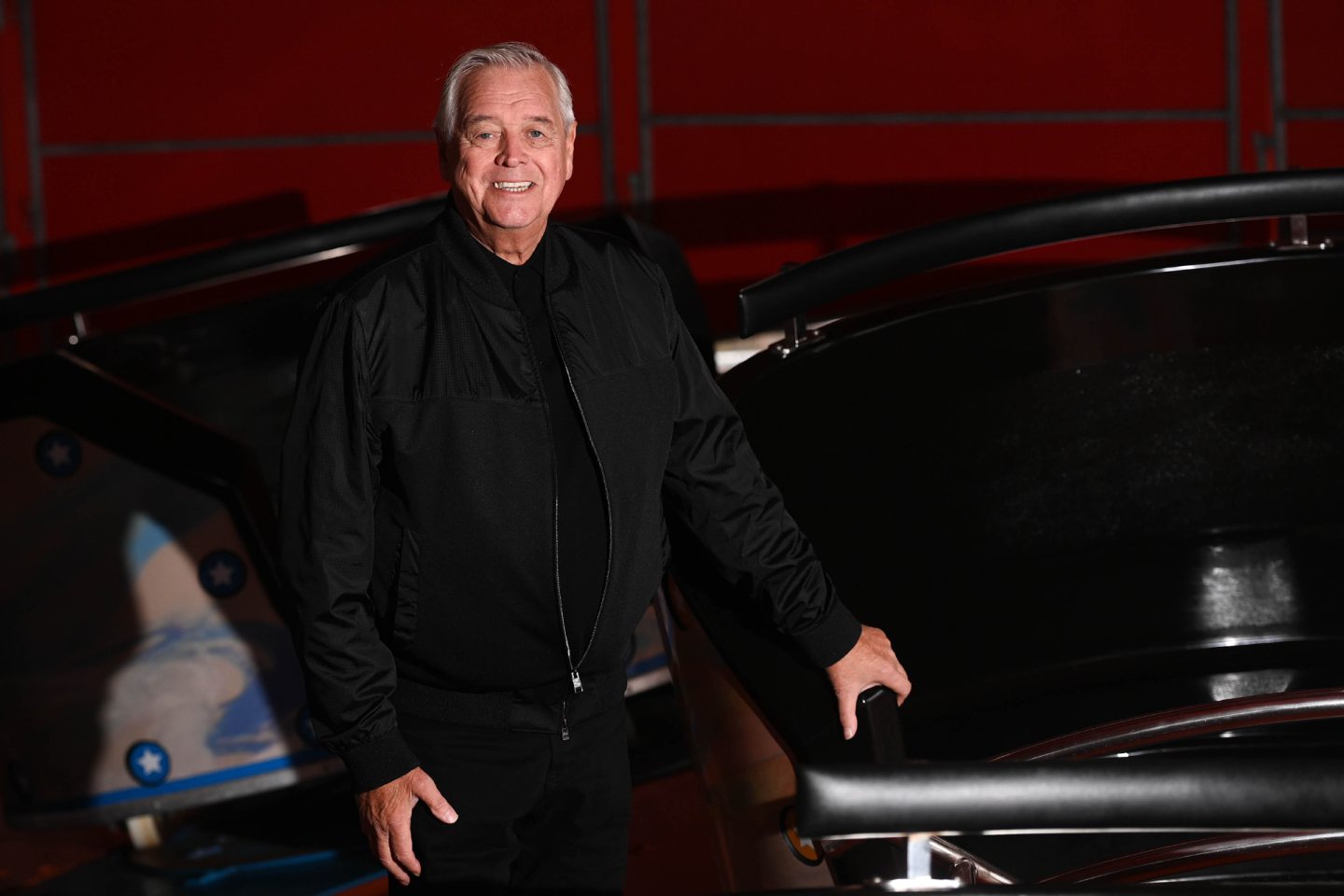
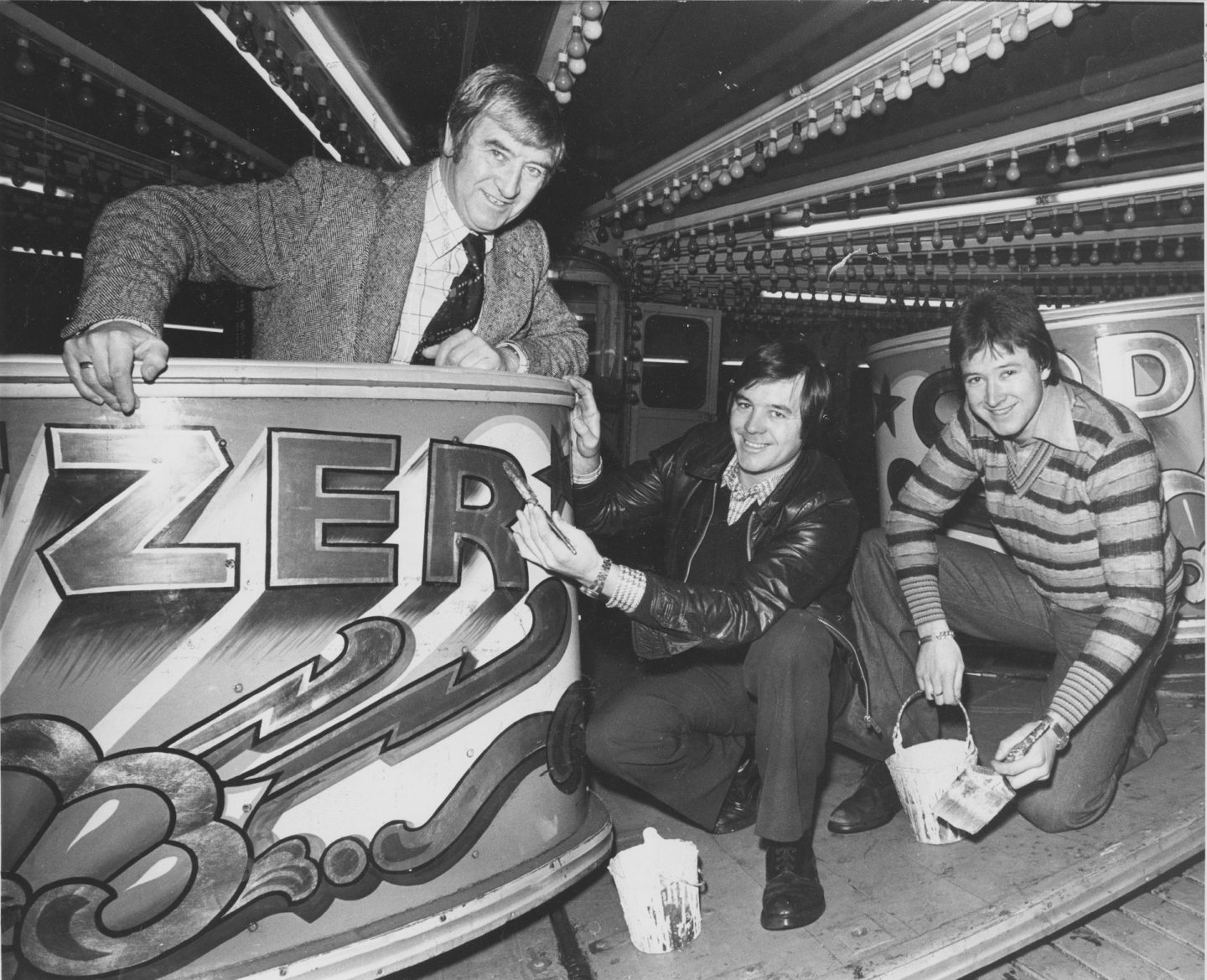
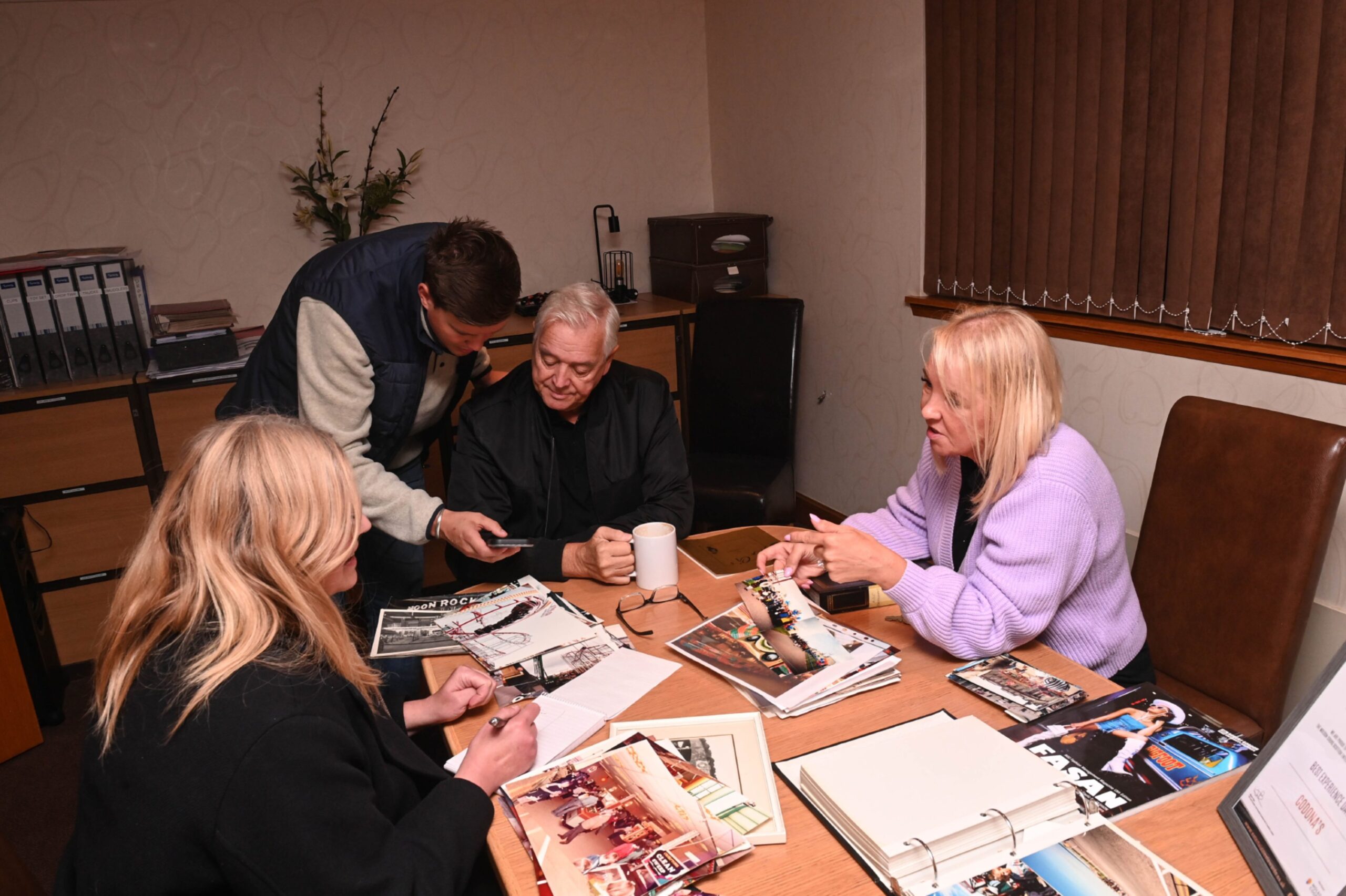
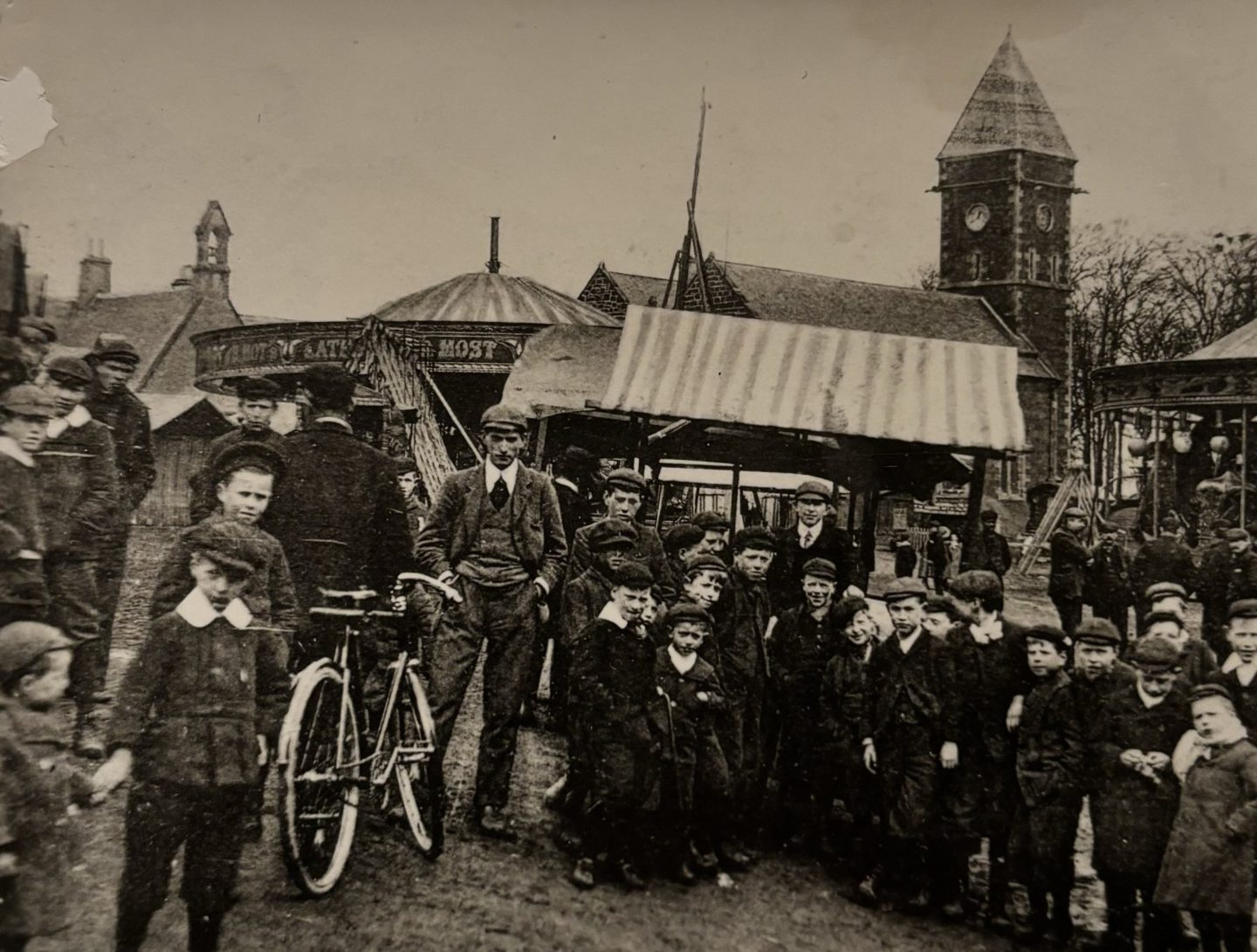
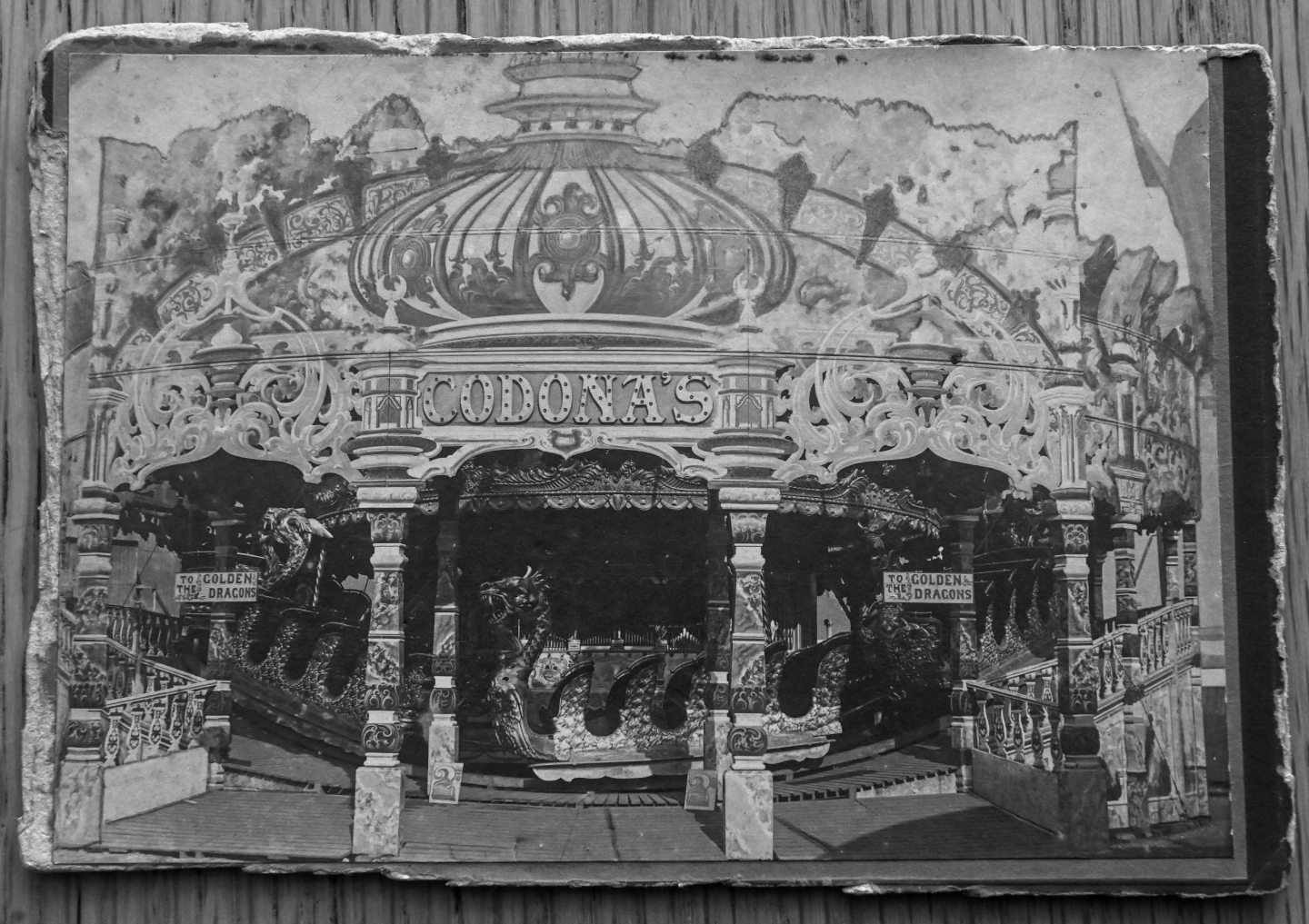
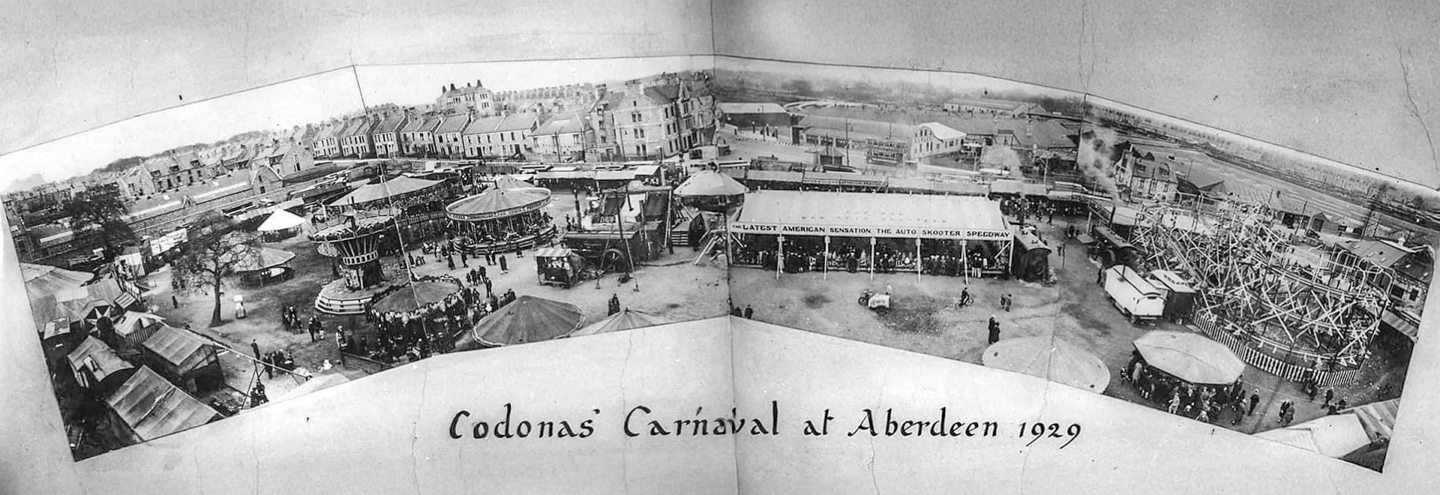
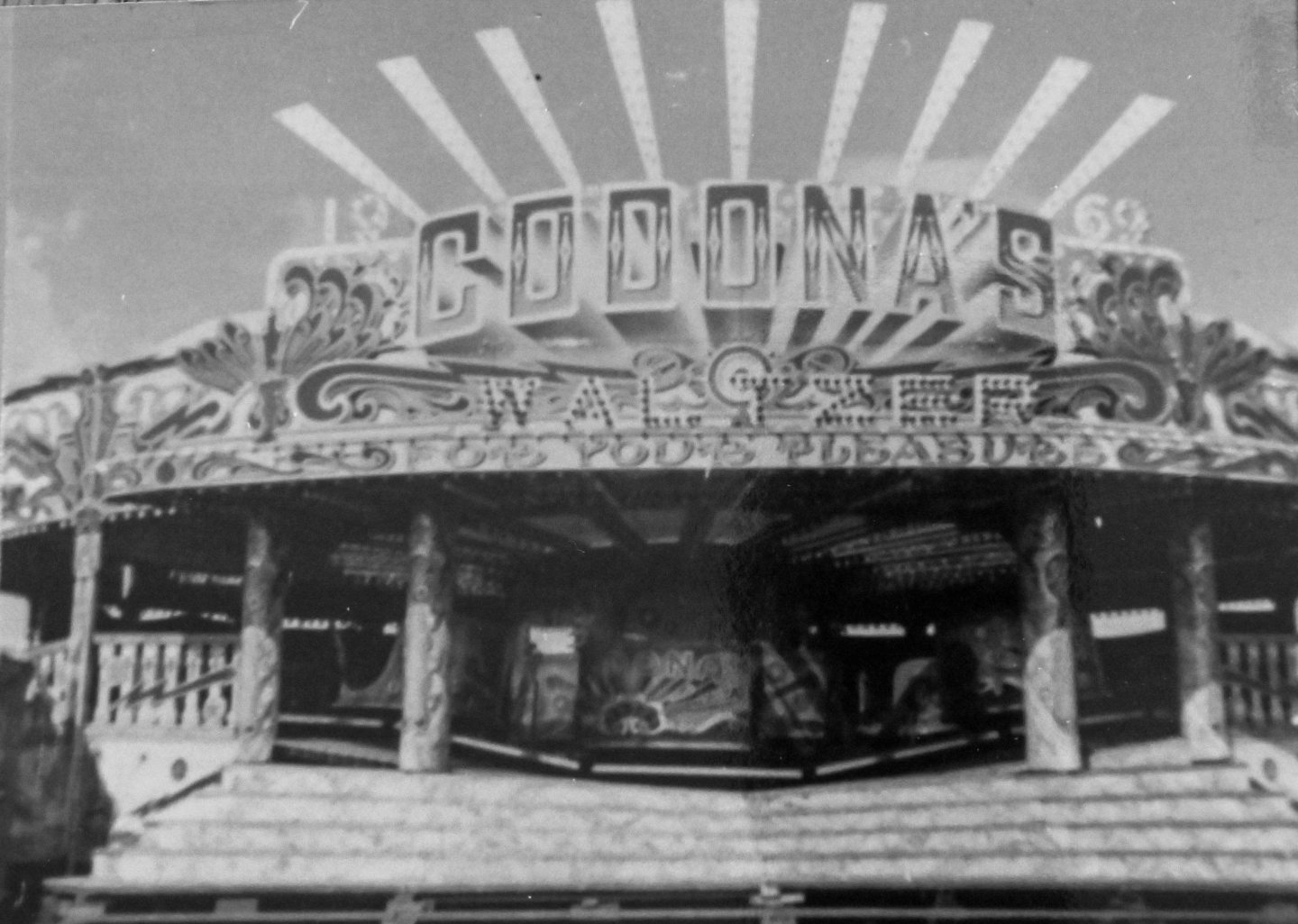
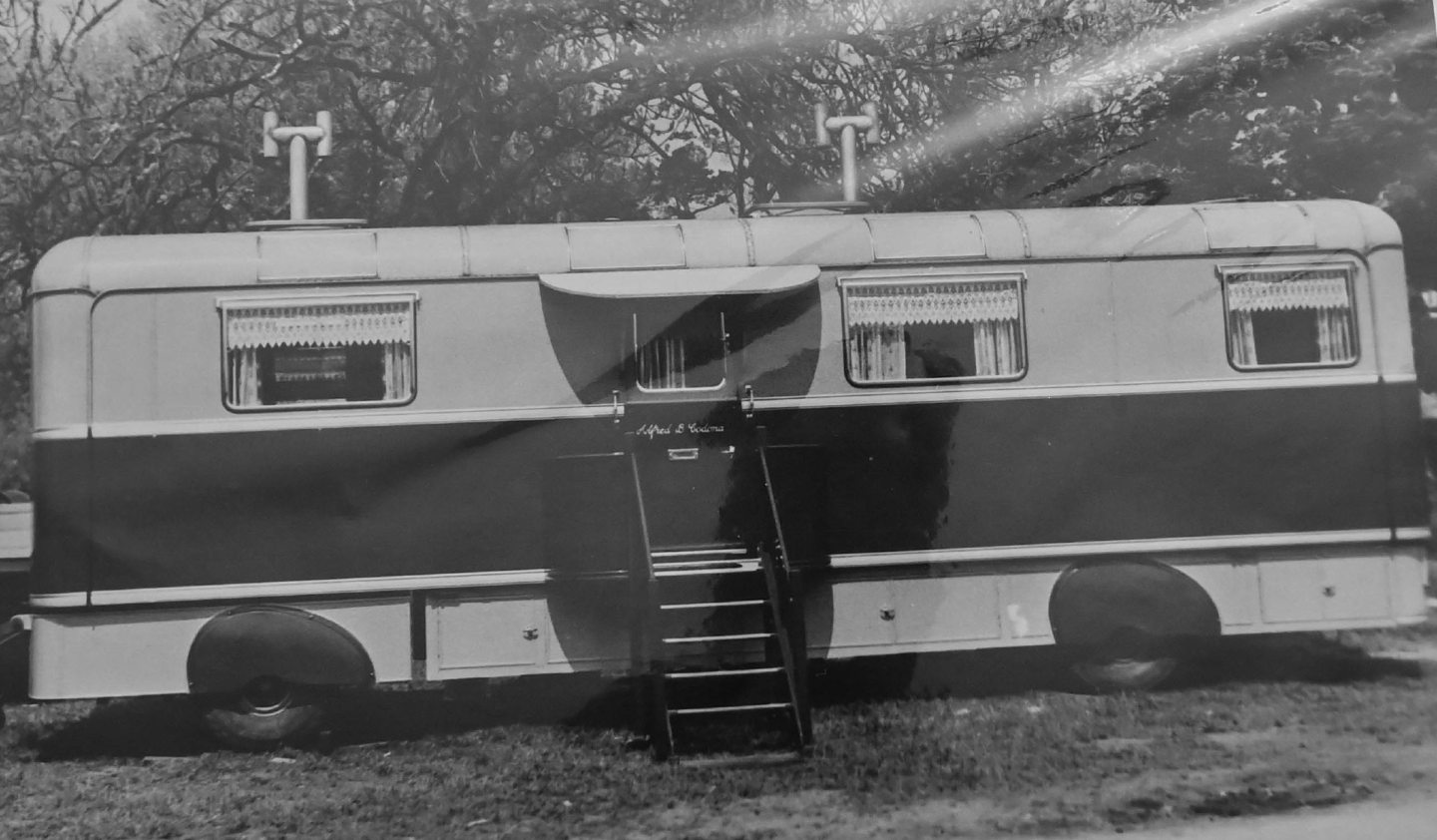
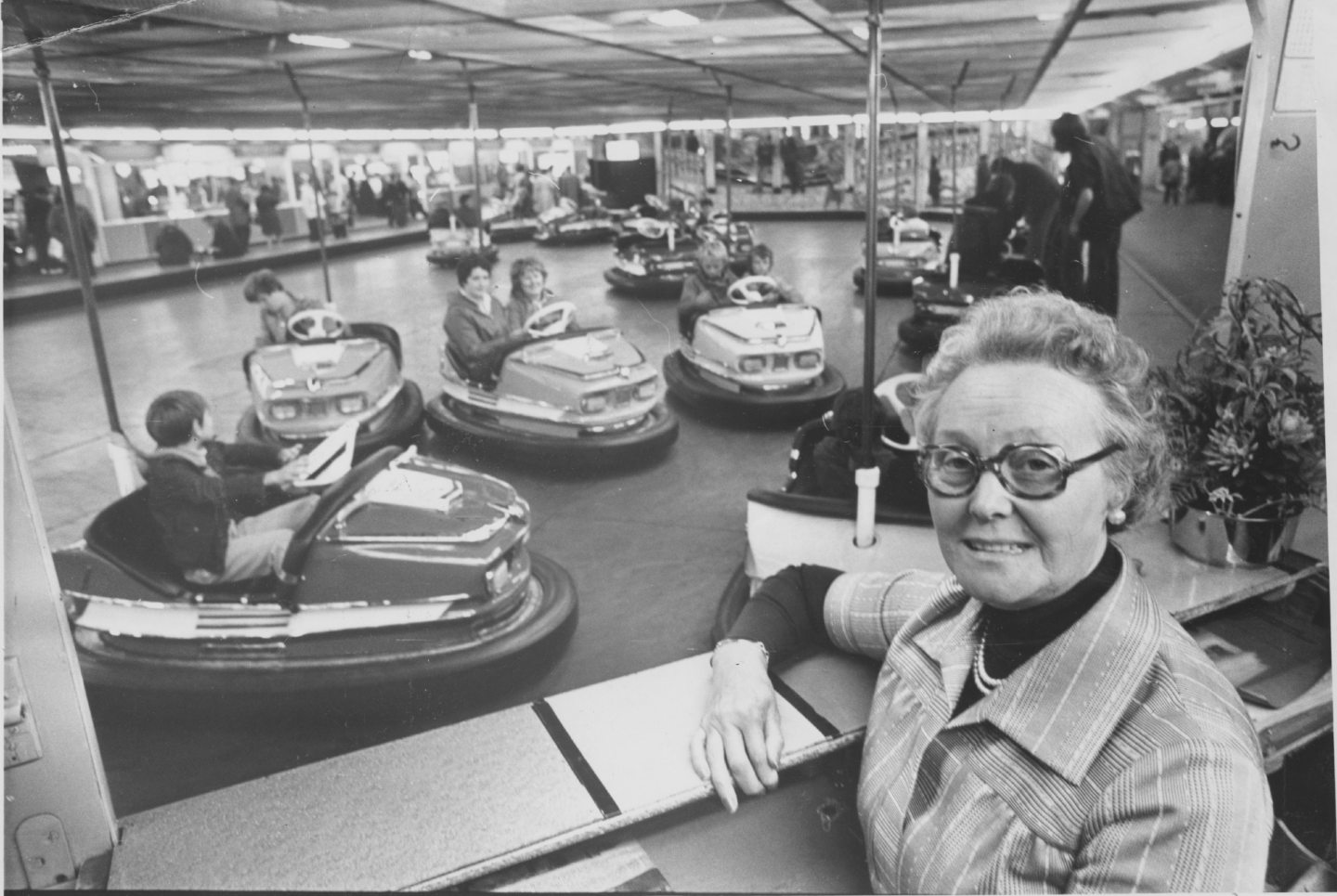
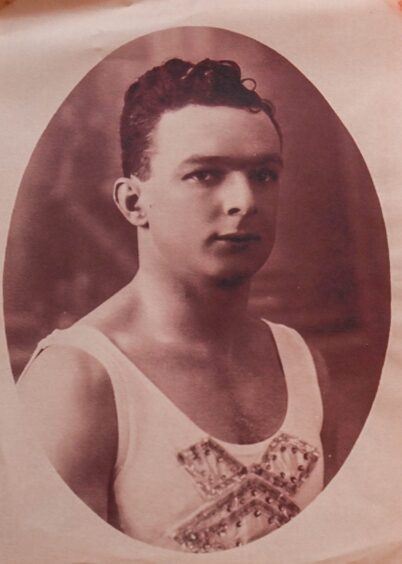
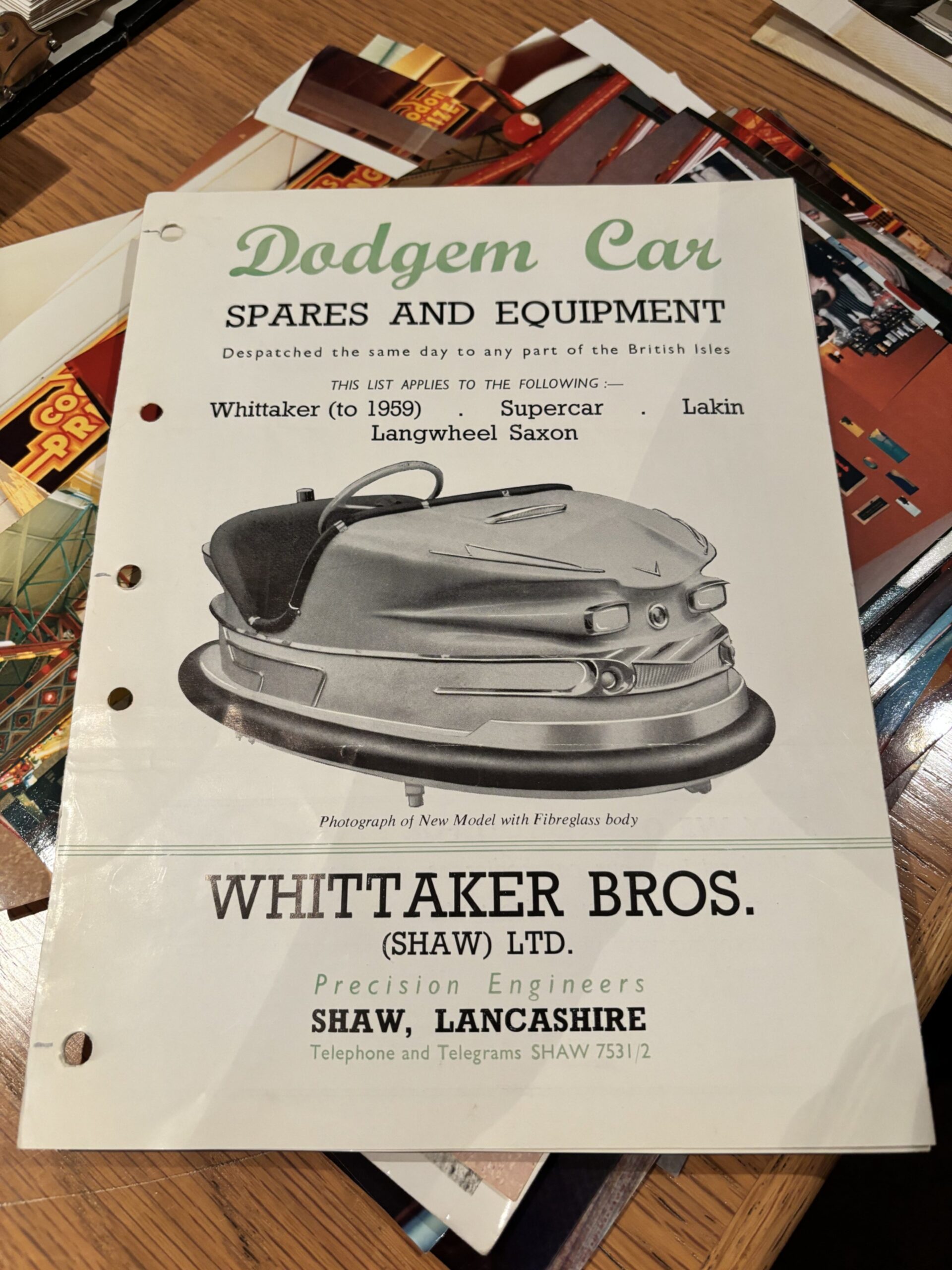
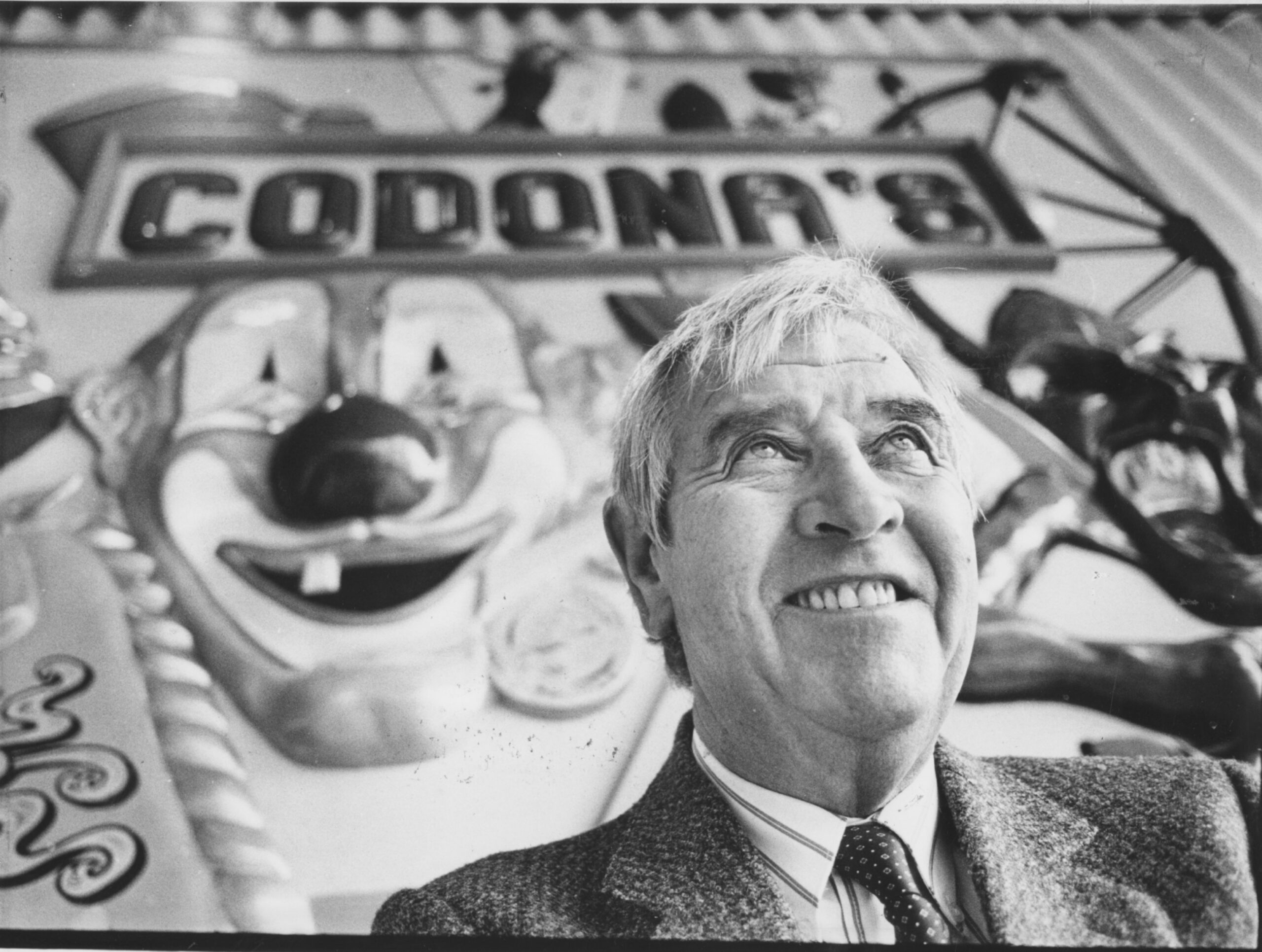
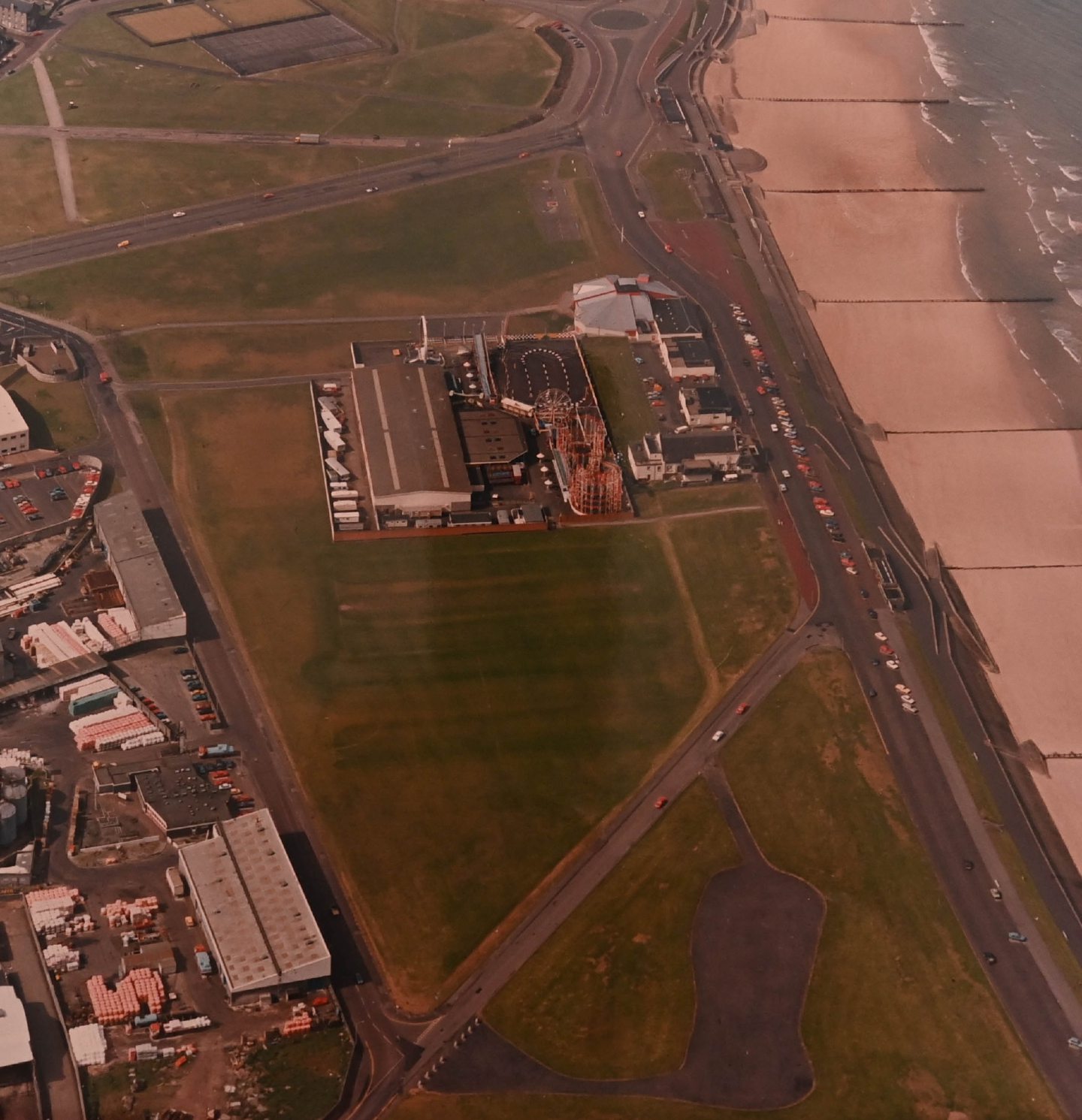
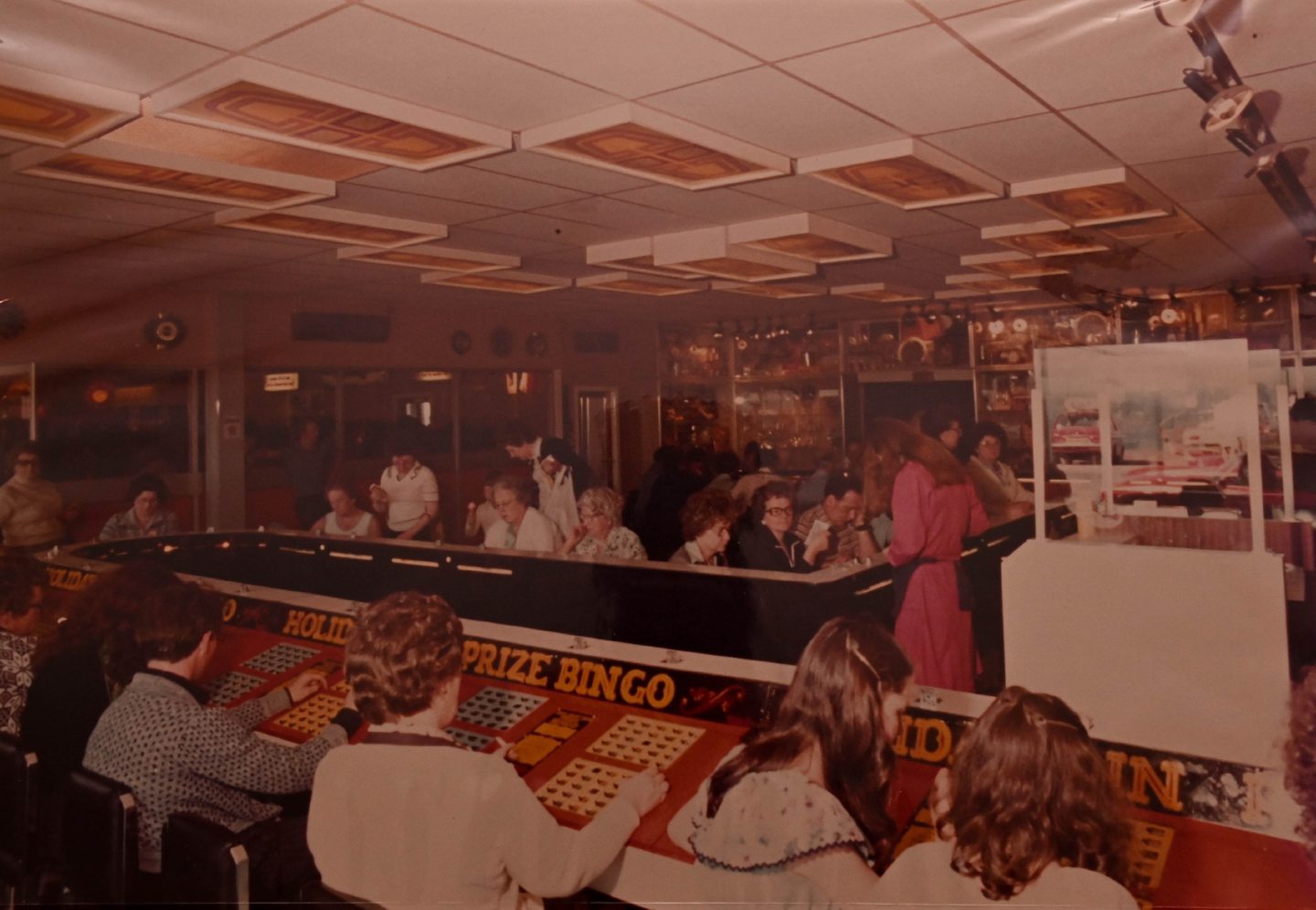
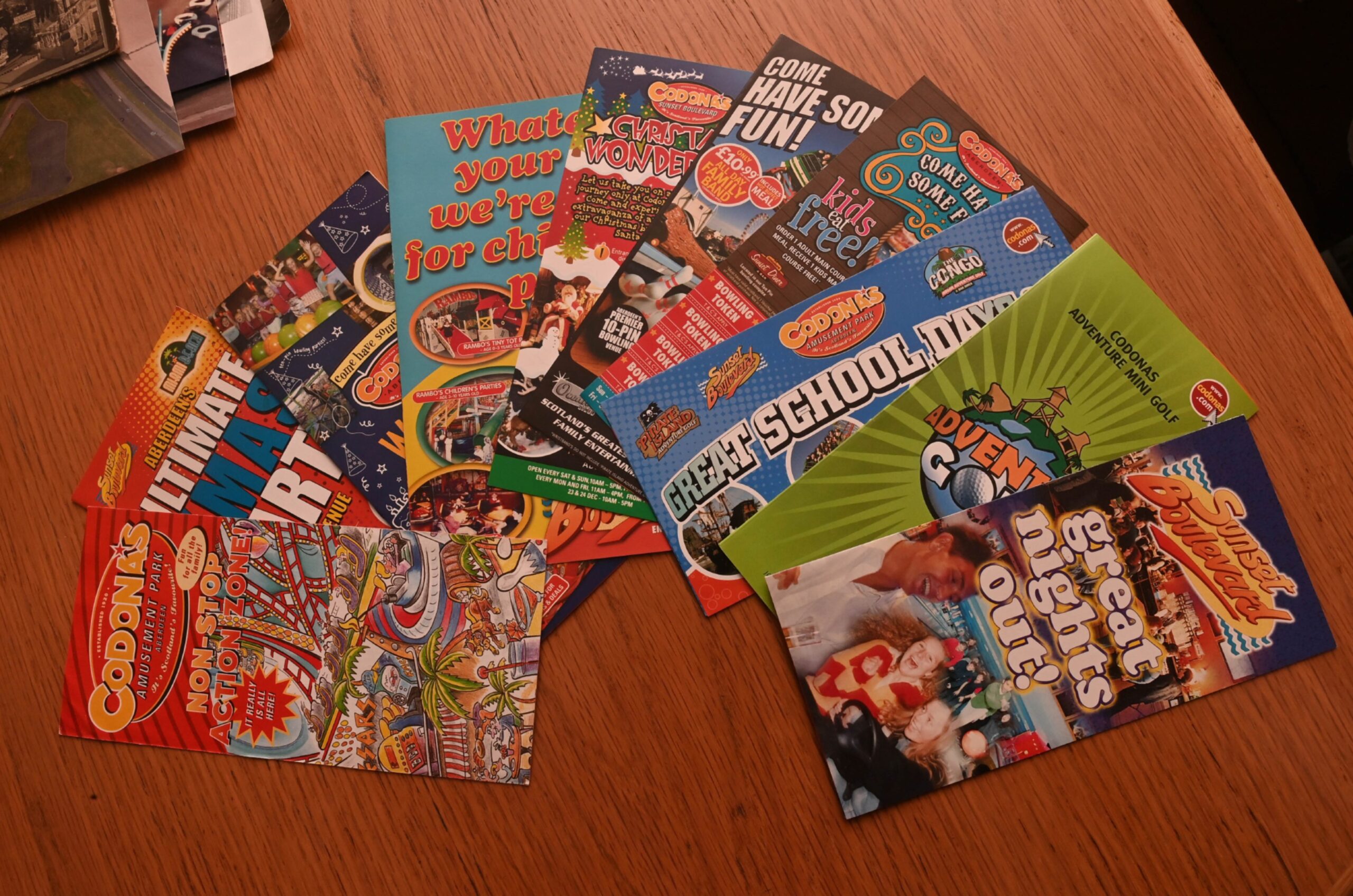
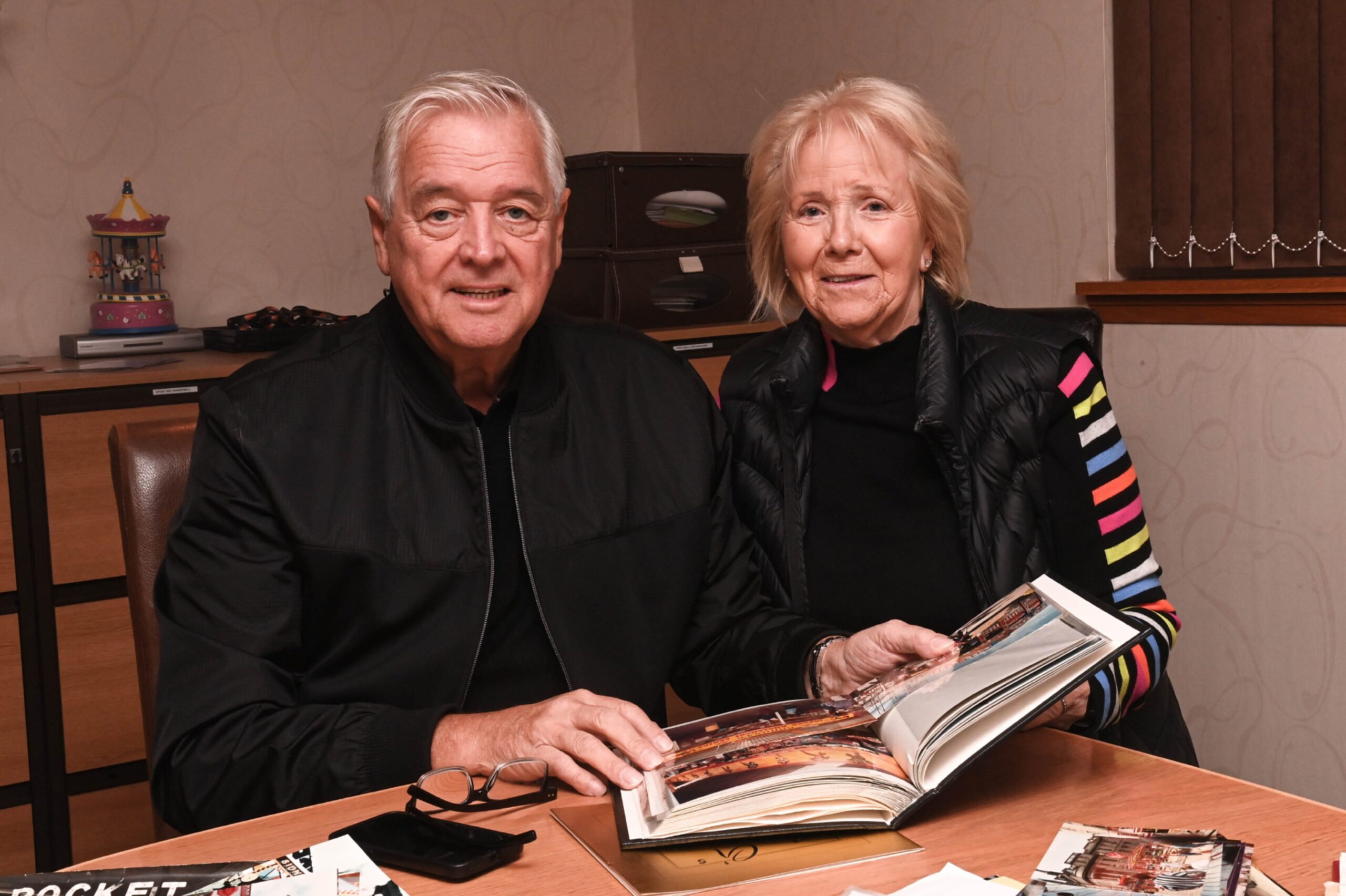
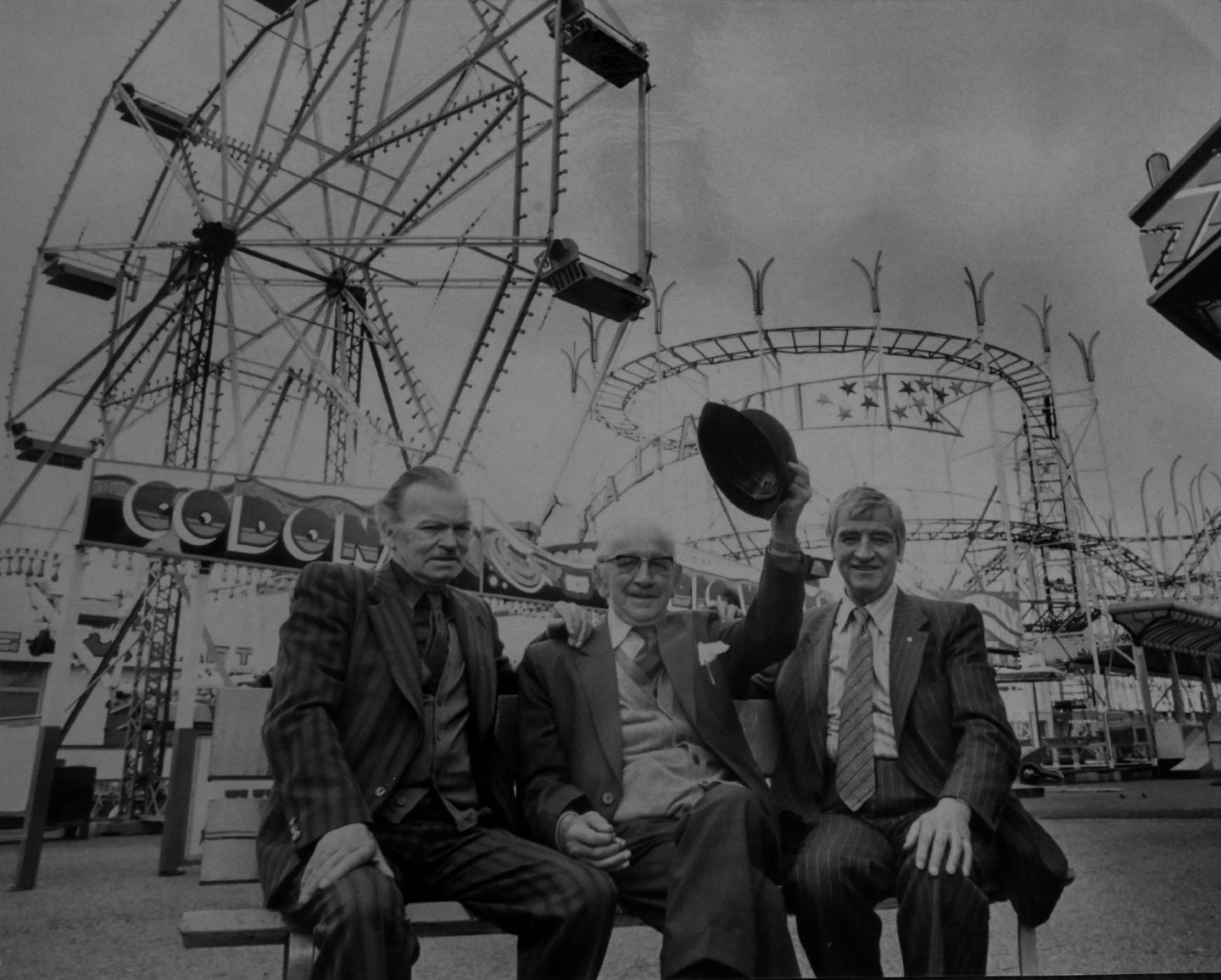
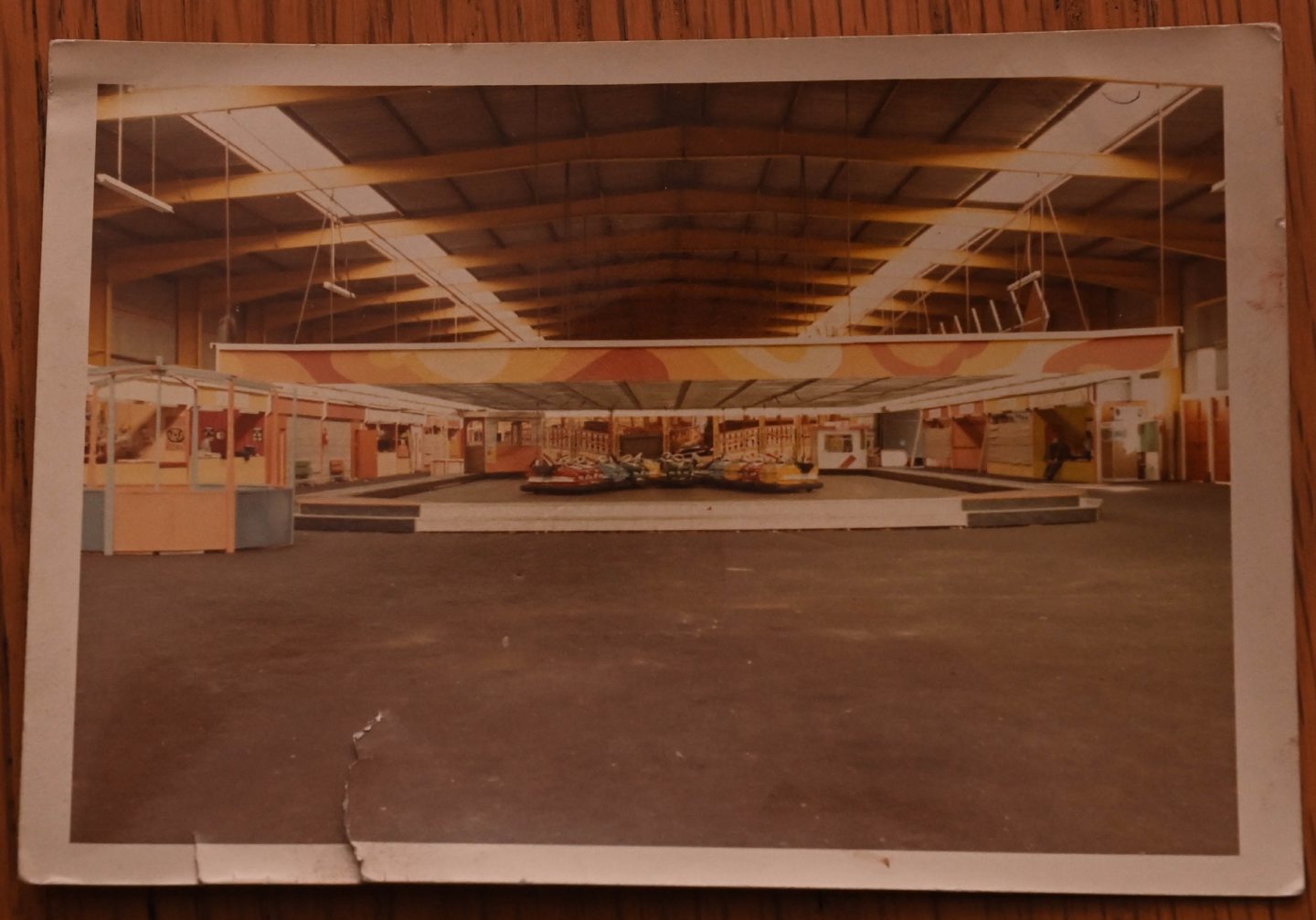
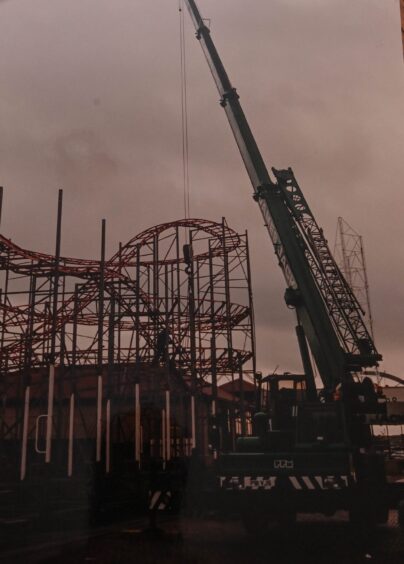
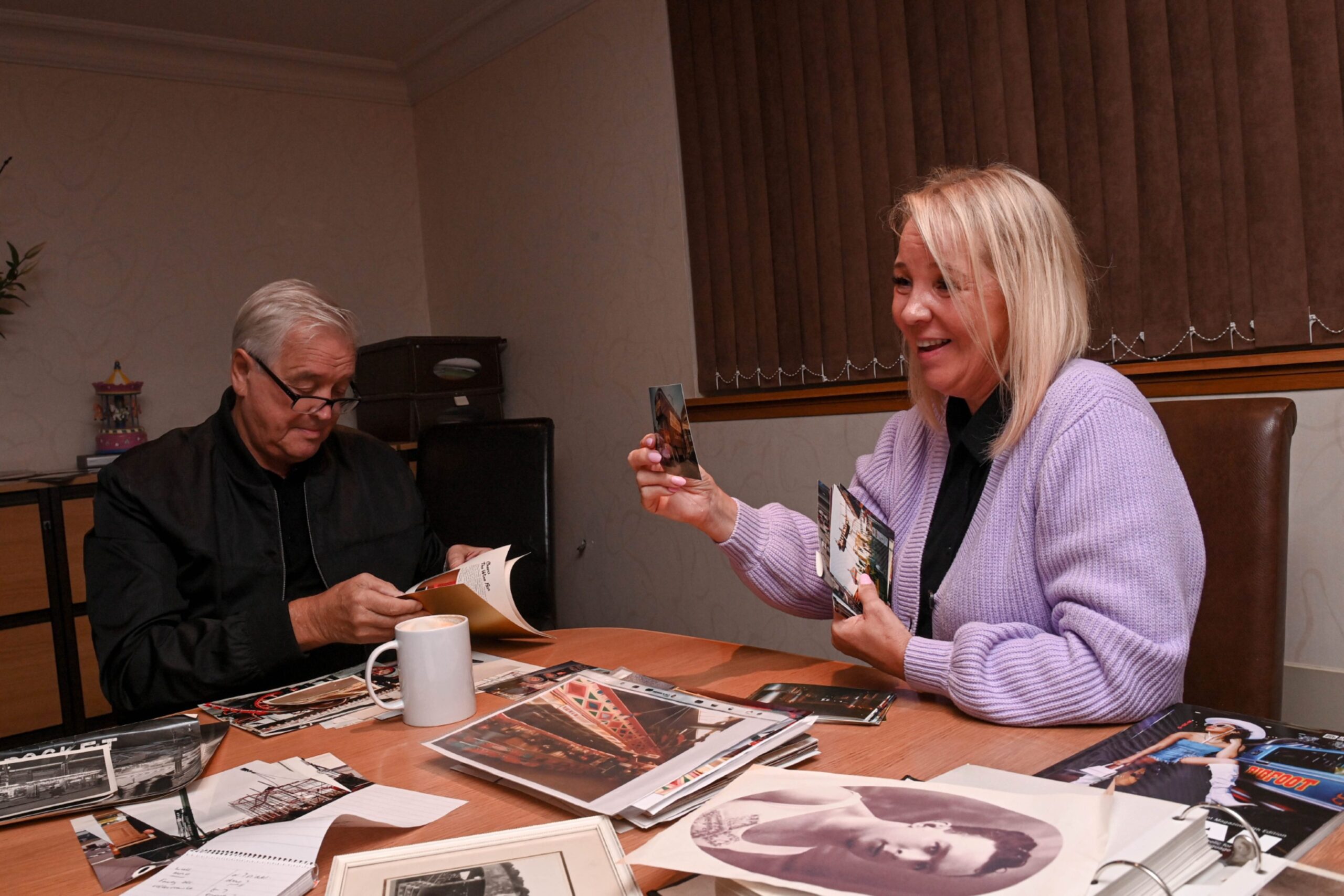
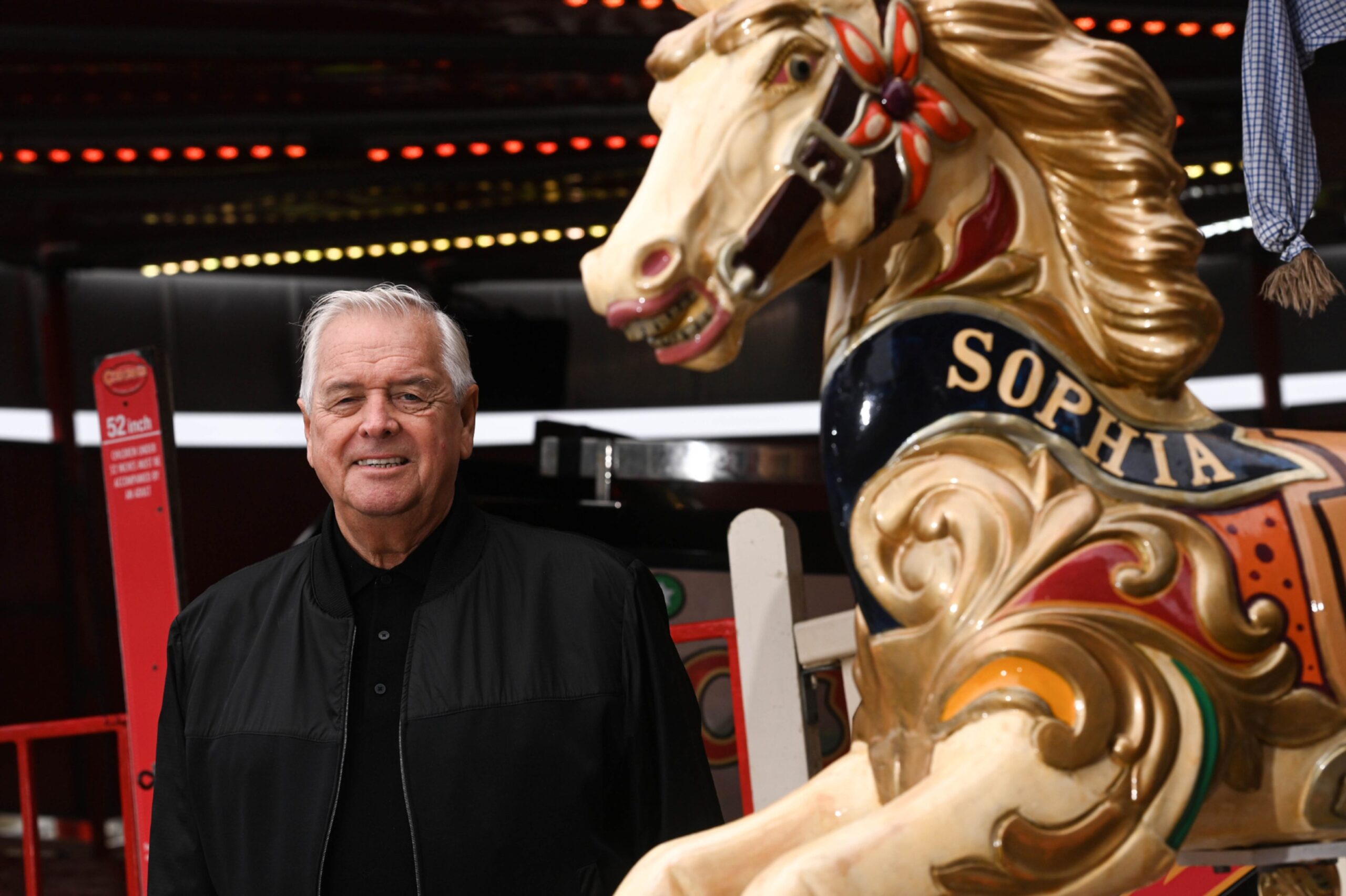
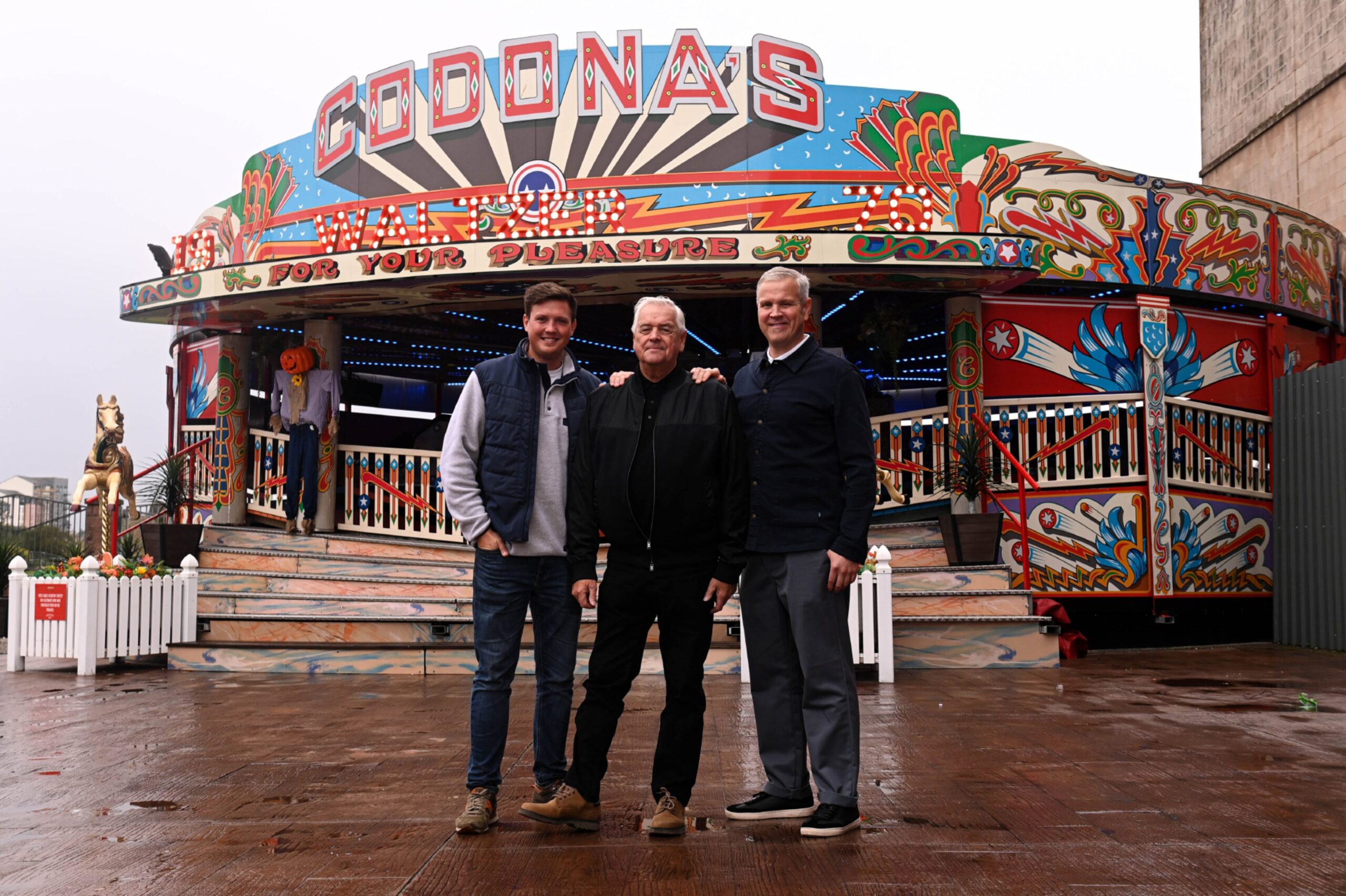
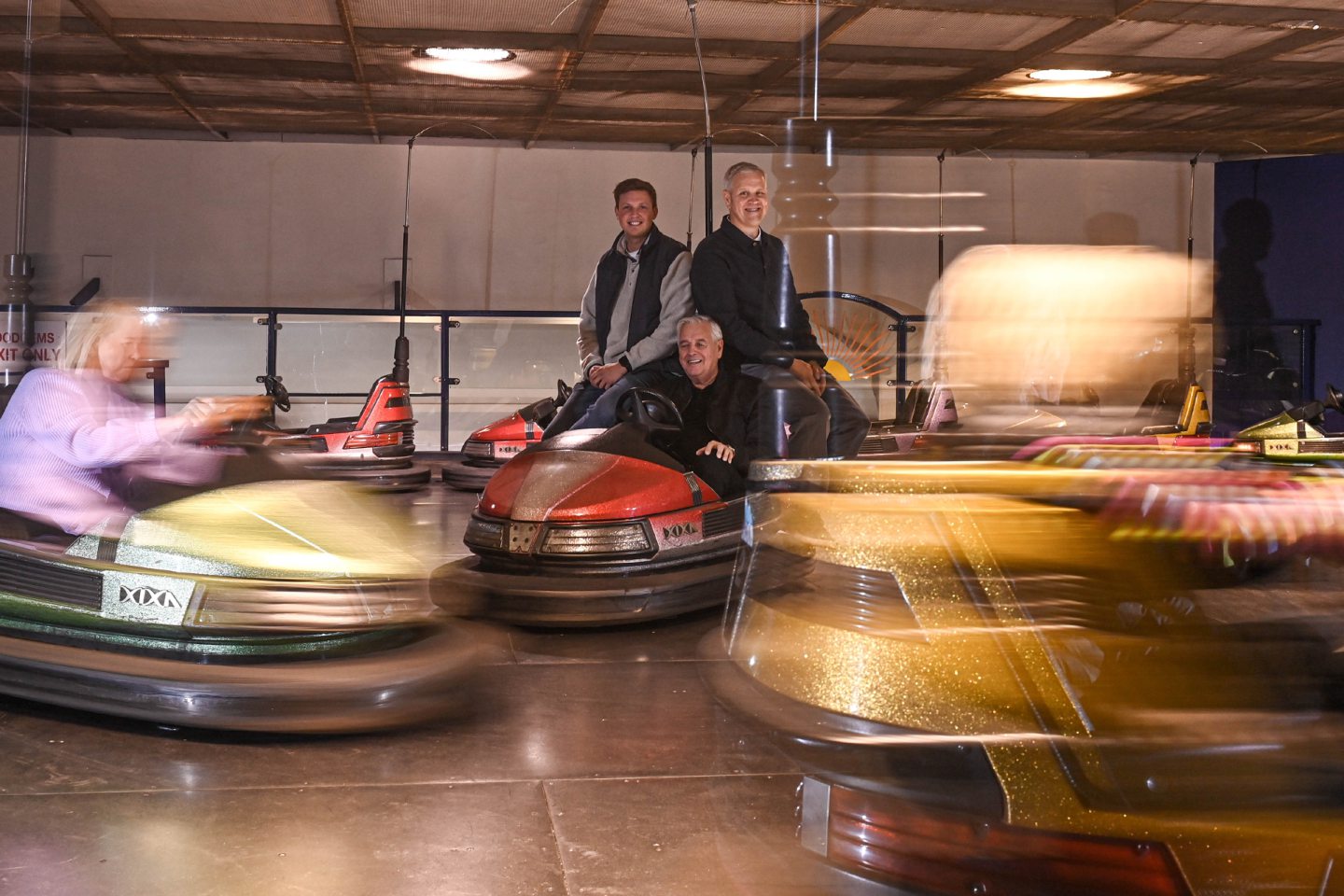
Conversation